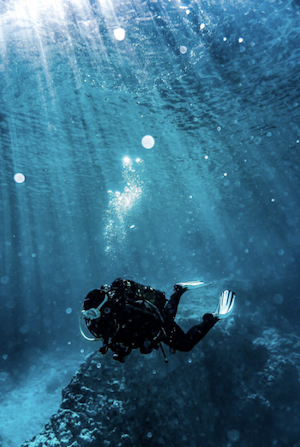Will Deep-sea Mining Help Fuel Renewable Energy?
The wealth of minerals residing deep within the ocean's depths possesses the potential to play a crucial role in the development of renewable energy infrastructure and job opportunities in the Marine sector of which one example is the daily listing of marine engineer jobs on Jooble. However, it is imperative to carefully consider the potential negative consequences that might arise from extracting these minerals through mining operations. In this article, we will elucidate the effects of sea mining on our environment.
What is Deep Sea Mining
Deep-sea mining retrieves ores abundant in valuable elements like Cobalt, manganese, zinc, and other scarce metals from the oceanic depths. These precious metals are pivotal in fabricating batteries used in electric vehicles, smartphones, and laptops, thus contributing to modern technological advancement. Multiple nations are avidly exploring the prospects of delving into deep sea mining, drawn by its potential economic gains. However, the enthusiastic pursuit of this practice has been met with cautious concern from experts who have sounded the alarm bell regarding its potential adverse effects on the intricate tapestry of oceanic biodiversity.
Will Deep Sea Mining Help The Environment?
The primary concern stems from the absence of comprehensive scientific knowledge concerning the biology, ecology, and interconnectivity of the species and ecosystems that inhabit the abyssal depths. The complexity of deep-sea environments and the life forms that inhabit them renders understanding their interactions and dependencies a daunting task. These ecosystems provide many invaluable services, the significance of which extends beyond our immediate comprehension. The lack of a robust information base handicaps our ability to gauge the possible ramifications of deep-sea mining, not only for the biodiversity nestled within these abyssal realms but also for the overall equilibrium of the surrounding ecosystem and the well-being of humanity at large.

Image: https://www.pexels.com/photo/person-on-body-of-water-3046582/
Some global ocean governance and policy specialists at the World Wide Fund for Nature point out that the discourse surrounding deep-sea mining was initiated by Nauru, a miniature island located northeast of Australia. Nauru formally petitioned for a commercial license from the International Seabed Authority (ISA) in 2021, setting a two-year timeframe for the ISA to formulate comprehensive deep-sea mining regulations. This deadline was set for July 9, 2023.
A group of 18 nations has adopted stances opposing the practice of deep-sea mining within international waters. Due to pressing environmental apprehensions, these nations advocate for a temporary suspension or moratorium on this activity. There is a likelihood that these countries will be provided with an opportunity to partake in a forthcoming vote concerning the imposition of a future ban, with this decision-making process projected to transpire over the upcoming month.
On the opposing side of the debate, proponents assert that these minerals play a pivotal role in satisfying the global requirement for sustainable technologies. Citing the International Energy Agency's forecast, which outlines that achieving a state of Net Zero Global greenhouse gas emissions necessitates a fourfold amplification in mineral demand for clean energy technologies, advocates emphasize the critical significance of these resources. However, apprehensions linger among scientists concerned about the potential emergence of a frantic rush for valuable metals beneath the ocean's depths, akin to a Gold Rush, and its potential ramifications on marine ecosystems.
One particular concern is the possible disturbance inflicted upon marine life, predominantly in the forms of noise and light pollution, which could directly result from deep sea mining activities. As the events unfold in Jamaica, it's crucial to recognize that the determinations established during the International Seabed Authority (ISA) meetings carry immense weight, as they can mould the trajectory of deep-sea mining. These decisions are poised to impact the industry's future profoundly.
Conclusion
While deep-sea mining offers the potential for a sustainable energy source, it must not come at the expense of our precious ecosystems and the global environment.
Also read
- Home EV Charging Stations in Ireland: How Much Can You Really Save?
- Automated File Conversion Services: Transform Documents Without Manual Work
- The Rapid Evolution of Direct Current Fast Charging for Electric Vehicle Fleets
- Scaling Data-Driven Campaigns Without Breaking Your Stack
- The 12th World Sustainability Forum (WSF-12)

